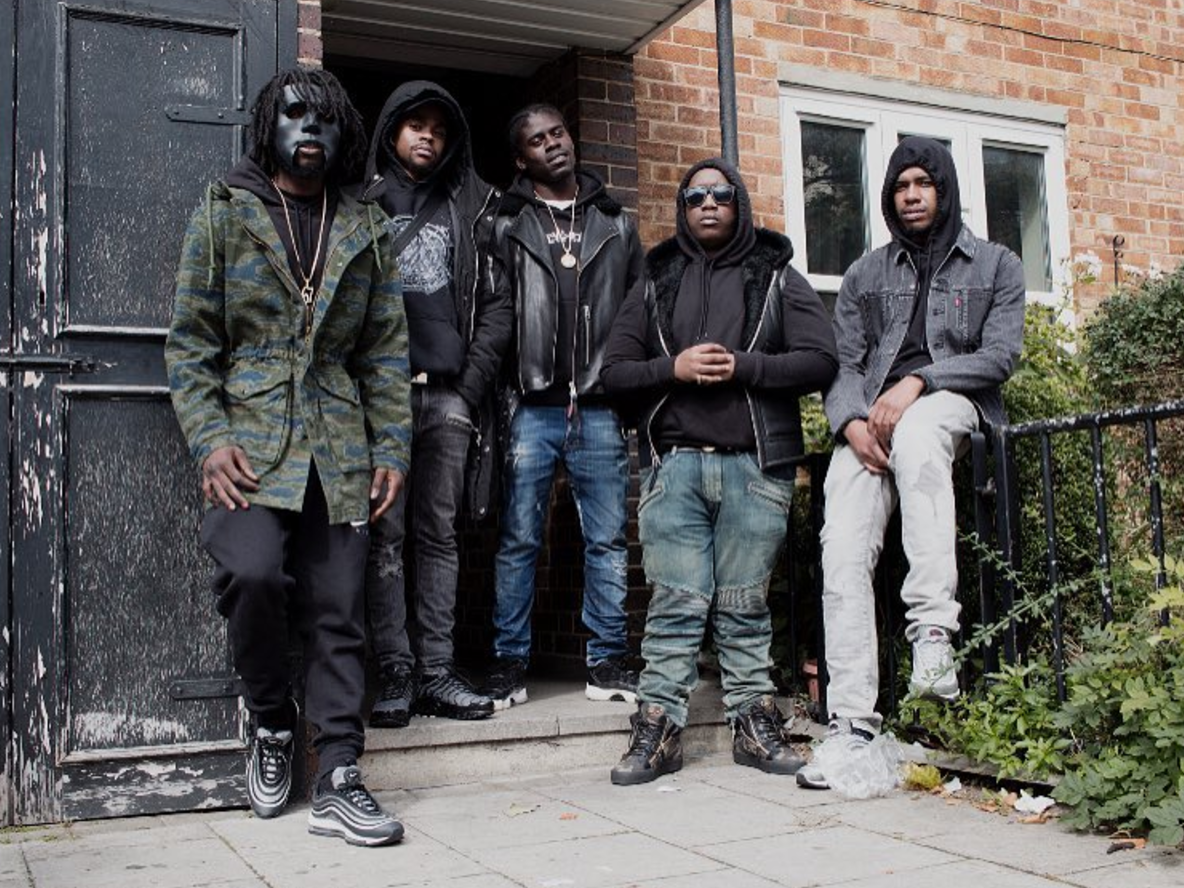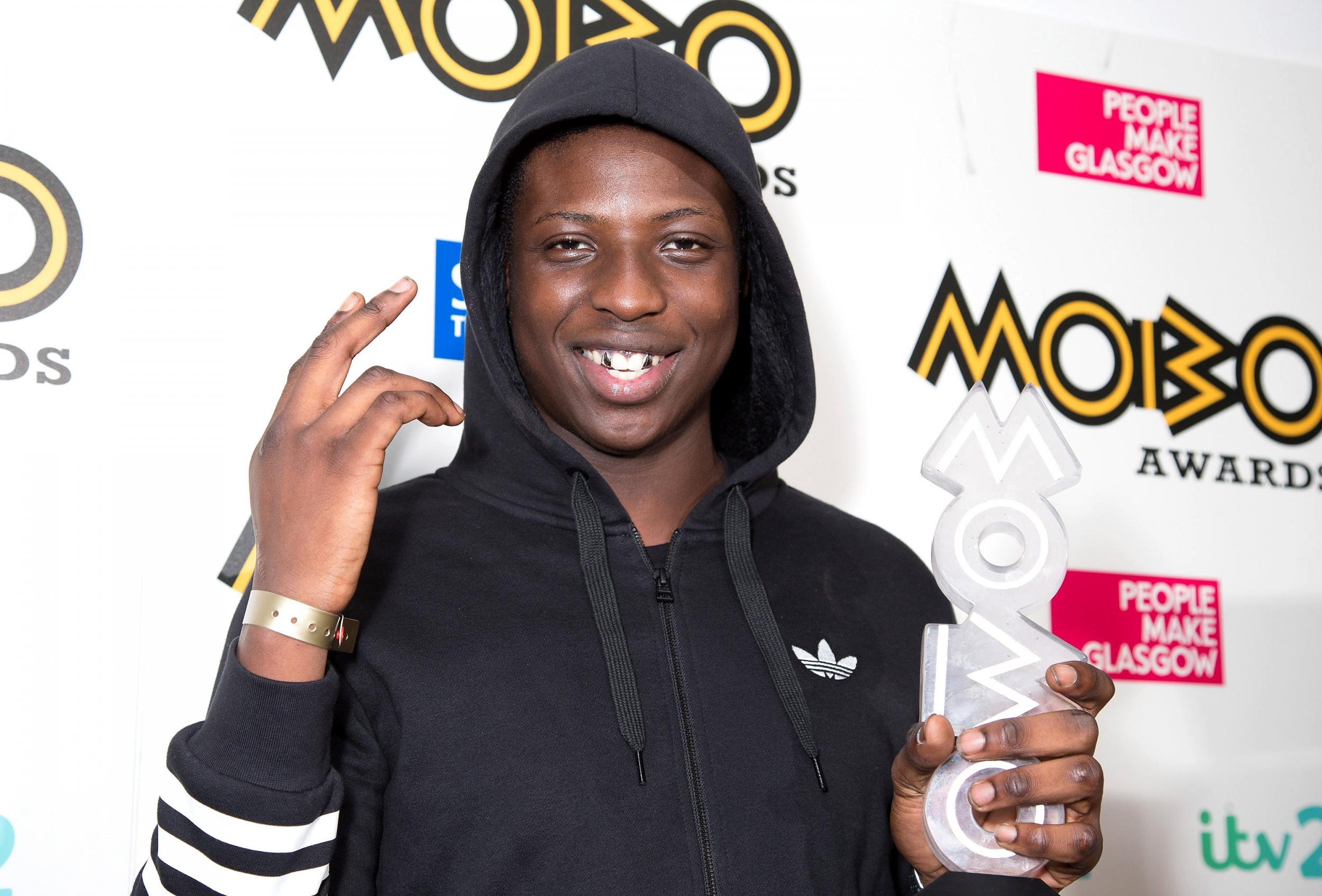Inside UK drill, the demonised rap genre representing a marginalised generation
Until recently, mainstream media have actively ignored drill, but are now jumping on a bandwagon of blame - not hesitating to pinpoint blame on the music and its disciples for perpetuating a recent spike of violence in London

Your support helps us to tell the story
From reproductive rights to climate change to Big Tech, The Independent is on the ground when the story is developing. Whether it's investigating the financials of Elon Musk's pro-Trump PAC or producing our latest documentary, 'The A Word', which shines a light on the American women fighting for reproductive rights, we know how important it is to parse out the facts from the messaging.
At such a critical moment in US history, we need reporters on the ground. Your donation allows us to keep sending journalists to speak to both sides of the story.
The Independent is trusted by Americans across the entire political spectrum. And unlike many other quality news outlets, we choose not to lock Americans out of our reporting and analysis with paywalls. We believe quality journalism should be available to everyone, paid for by those who can afford it.
Your support makes all the difference.London feels like a war zone. In 2018 alone, the Metropolitan Police has reported 50 knife and gun-related deaths in the UK capital, with an ominous rise – the highest in a decade – in the past two weeks.
What seems like indiscriminate, inexplicable crime is having its root causes dissected and, in a state of moral panic and unfolding debate, mainstream media is clumsily pointing to one direction: the current soundtrack of the UK’s streets, drill.
A form of trap-style rap taken from Chicago and pioneers such as Chief Keef in the early 2010s, then exported into south London some years later and popularized by 67, K-Trap, 150 and others, drill has enveloped UK music’s underground with its rampant, energetic and domineering sounds, reflecting the harshness of these rappers’ respective neighbourhoods.
Until recently, mainstream media have actively ignored it, but are now jumping on the bandwagon of blame, not hesitating to pinpoint blame on the music and its disciples for perpetuating violence. Some even go the extra mile and flat out demonise everything about it – to ludicrous levels and with a failure to grasp slang in their criticisms – and are left exposed as the proverbial relics and proprietors of white privilege that they are.
Let’s be clear, drill music is no picnic. In it, rappers detail vivid accounts of cooking up drugs, facing up to their rivals (or opps) and harming those who dare to disrespect them. Yes, lines referring to cleaning kitchenware after doing away with a person exist, and their presentation (visuals of young black men in all-black tracksuits, faces covered in balaclavas, spewing street slang and throwing up frequent gunfingers) can be ominous from the outside looking in.
While street politics, social media antics and the inevitable violence they produce are issues rife within this music, drill is the new sound of the disenfranchised as they make sense of a neglectful nation. Scratching beneath the surface of their explosive and territorial bravado further, you discover that these drillers are really crying out for help, speaking to a mental anguish that has engulfed them but fails to be addressed.
This is a reality far removed from the idyllic British society the media likes to perpetuate when they fail to even report most murders in the capital. Their fantasy is just that, and violence on our streets embodies this notion. What mainstream media and the government continuously fail to grasp is that these tales, accounts and personas rife within drill music are simply reflections of their localities.
These are communities that are constantly being let down by cuts to local services, such as youth clubs and school services that would take would-be gangsters and murderers off the streets, channelling their energies into positivity.
Just last week the home secretary, Amber Rudd, denied that cuts to police services have anything to do with the recent spate of violence, ignoring a leaked report that spoke to the contrary, another tale of politicians and authority figures skirting responsibility.
Enjoy unlimited access to 100 million ad-free songs and podcasts with Amazon Music
Sign up now for a 4 month free trial (3 months for non-Prime members)
Enjoy unlimited access to 100 million ad-free songs and podcasts with Amazon Music
Sign up now for a 4 month free trial (3 months for non-Prime members)
Rather than looking inwards, admitting the failure of a generation and putting systems in place to begin rectifying the damage, higher forces continue to show little care, and the result is bloodshed. To implicate a musical genre for such violence – something that has existed generations before UK drill became a factor – is, frankly, unfounded. These problems would exist without drill, so why is it now the fashionable thing to heap blame upon?
Prominent MC Abra Cadabra eloquently expresses this best, telling the The Guardian last week: “Targeting musicians is a distraction. The cuts that affect schools, youth clubs, social housing and benefits are making life harder for the average person living on or below the poverty line in this city.
“There are people doing mad tings, not because they want, but because the situation has forced them to.”

His sentiments were echoed by prominent DJ Bembah, speaking to BBC Radio 4 last Monday: “[Drill] is just real-life content, you talk about things that happen from day to day. Music can affect your emotions, but it can’t affect what you do outside. It can’t make you go outside and stab someone.”
And, despite the best efforts of POC writers such as Ciaran Thapar – a journalistic authority on the genre and a youth worker in Brixton, drill’s ground zero – to communicate these issues on a national scale and link them to its rise, their efforts are either ignored or coopted (without credit) by an establishment quick to jump on the hot topic of the day.
“I think it is remarkable that paying attention to this rich, complex type of modern subculture has required a context of blame,” he says, “rather than a willingness to appreciate drill as something worth studying for the sake of better engaging with young people. Or, a willingness to criticise powerful forces in society that have created an environment that is ripe for this music being made violence and disenfranchisement being realised.”
Clearly, it is a greater case of music being shaped by its surroundings than teenager and young adult rappers being spurred by drill’s various anthems.
Thapar continues: “If a given teenage boy cannot disassociate from the content of a type of music, to the extent that it is making him want to kill someone, then surely that’s the failure of us as a society to allow education and parenting and community relations to get that bad? It’s not music’s responsibility.”
British media’s moral frenzy of late simply presents the detachment between them and these communities, but instead of trying to close the gap and deal with what causes these issues, they widen it further by demonising an entire subculture.
This is nothing new; grime’s rise in the early 2000s coincided with Operation Trident, a state-wide police initiative to tackle gang violence. There, the new sound was also victimised – sensing a pattern here? That drill is merely another chapter in this blame game is indicative of a society in which its representatives have been placed on the periphery by a nation that ought to protect them from the dangers of street life.
The collective attitude of the mainstream therefore brings up the old (or maybe not) adage that black communities remain aliens – punching bags for when the going gets tough – and that black boys are forever the problem of British society.
“That’s what it feels like,” says Complex senior editor and Trench editor-in-chief Joseph “JP” Patterson. “Especially when you’ve got papers like the Daily Mail consistently attacking successful black men in Britain. It’s almost like, no matter which route you take, it’s never good enough for these people.”
An endless cycle of interrogation may put these forces at ease, but ignoring these problems breed contempt, giving birth to more violence. Regardless of London’s murder rate, drill will continue to offer a voice to those without one because, for many of them, it’s all they have to survive.
“As long as our country is being delivered austerity,” Thapar says, “and people in London are happy to watch gentrification completely isolate long-forgotten communities of young people, the music is going nowhere, because it will connect with people who are believing and resonating with its message.”
Mainstream media, the government and public services have the tools to transform some of these communities for the better, but it requires a real change in mentality that, based on the current chain of events, is not achievable in the near future.
Yemi Abiade is editor at Dummy Mag and contributing editor at Trench. Follow him on Twitter @yemiabiade